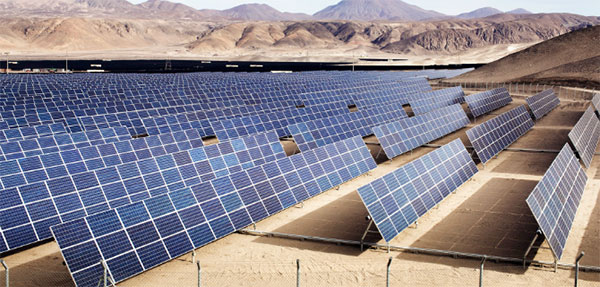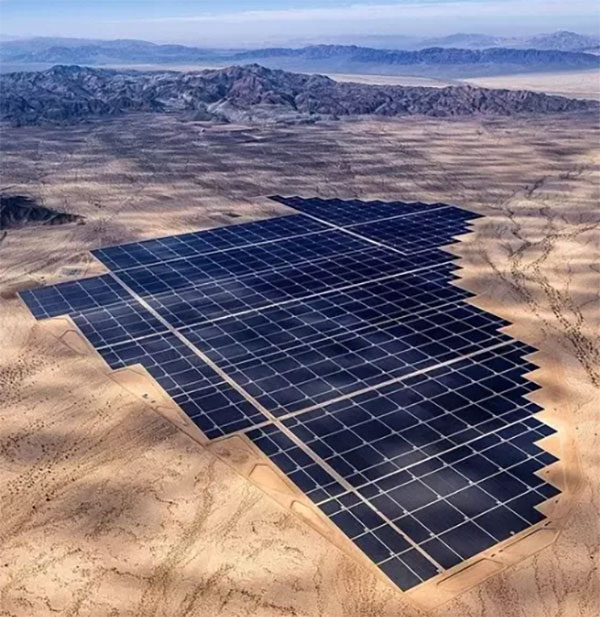Description
No, walking on solar panels risks damage and reduces efficiency; use alternative cleaning methods for safety and maintenance.

Understanding Solar Panel Cleaning
Solar panel cleaning is a crucial maintenance task that ensures optimal performance and longevity of solar panels. Dirt, dust, and other residues can significantly reduce the panels' efficiency. Regular cleaning helps maintain their
power output and prevents long-term damage.
Importance of Regular Cleaning
Regular cleaning of solar panels is not just about aesthetics; it's about maintaining their
efficiency. A study suggests that dirty solar panels can lose more than 20% of their energy output. The National Renewable Energy Laboratory states that this loss can be as high as 25% in some areas. Keeping solar panels clean ensures they operate at their maximum capacity, providing the best return on investment. For instance, a solar panel with a
power output of 250 watts might lose 50 watts or more if not cleaned regularly, significantly affecting the homeowner's energy savings and
budget.
Common Dirt and Debris on Panels
Solar panels are exposed to various types of dirt and debris. Bird droppings, dust, pollen, and fallen leaves can obstruct sunlight from reaching the solar cells. In coastal areas, salt mist can form a layer on the panels, reducing their
efficiency. The type and amount of debris vary depending on the location and environment. For example, panels in arid regions might accumulate more dust, while those in urban areas might collect more soot and grime. Understanding these factors is crucial for determining the cleaning frequency and methods.

Safety Considerations for Cleaning Solar Panels
When it comes to maintaining solar panels, safety is paramount. Cleaning these panels involves potential risks, especially when walking on them. Understanding these risks and taking appropriate precautions can prevent accidents and ensure a safe cleaning process.
Potential Risks of Walking on Panels
Walking on solar panels poses several risks. The most obvious is the risk of damaging the panels. The
pressure from a person's weight can crack the solar cells or the glass covering them. This damage can drastically reduce the
efficiency of the panels, sometimes by up to 30%, depending on the extent of the damage. Additionally, there's a risk of personal injury. Solar panels are often installed on sloped surfaces, like roofs, increasing the likelihood of falls and slips. The cost of repairing or replacing damaged panels can be substantial, not to mention the potential medical costs from injuries.
Appropriate Safety Gear and Precautions
To mitigate these risks, specific safety gear and precautions are necessary. Firstly, using a harness system is crucial when cleaning panels on a roof. This harness can prevent falls, which are a major concern given that solar panels are often installed at significant heights. Secondly, wearing non-slip shoes is essential to maintain grip and balance.
For the cleaning process itself, using long-handled tools and brushes allows the cleaner to clean the panels from a safe distance, reducing the need to walk on them. Additionally, employing professional cleaning services can be a wise investment. These services not only have the right equipment but also the expertise to clean the panels safely and effectively, often using automated cleaning systems that minimize the need for manual cleaning.

Methods for Cleaning Solar Panels
Proper cleaning of solar panels is essential for maintaining their efficiency and longevity. There are various methods and tools that can be employed to clean solar panels safely and effectively, without the need to walk on them.
Cleaning Without Walking on Panels
Cleaning solar panels without walking on them involves using tools and methods that allow you to clean from the ground or the edge of the roof. Here are some key techniques:
- Use of Telescopic Brushes: These brushes can extend to great lengths, allowing you to reach the panels from the ground.
- Hose with Soft Water: Using a hose with a nozzle that can reach the panels is another effective method. Soft water is preferred as it doesn't leave mineral deposits on the panels.
- Robotic Cleaners: These are automated tools designed specifically for cleaning solar panels. They can be quite effective, although they may represent an additional cost.
Tools and Techniques for Safe Cleaning
For safe and efficient cleaning, the right tools are crucial. Here's a detailed breakdown:
- Soft Brushes or Sponges: To avoid scratching the surface of the panels.
- Biodegradable Soap: Reduces the risk of leaving harmful residues on the panels or the environment.
- Wiper or Squeegee: For removing water and preventing streaks after cleaning.
- Safety Gear: Including harnesses and non-slip shoes for roof work.
| Tool/Technique |
Purpose |
Advantages |
Cost Estimate |
| Telescopic Brushes |
Reach panels from the ground |
Safe, no need for ladders |
$20 - $60 |
| Hose with Soft Water |
Rinse panels without hard minerals |
Prevents deposits, easy to use |
Varies by region |
| Robotic Cleaners |
Automated cleaning |
Efficient, thorough, minimal labor |
$100 - $500 |
| Soft Brushes/Sponges |
Gentle cleaning |
Avoids scratches, effective cleaning |
$5 - $20 |
| Biodegradable Soap |
Eco-friendly cleaning solution |
Safe for the environment |
$10 - $30 per gallon |
| Wiper/Squeegee |
Remove water and prevent streaks |
Ensures clear, streak-free panels |
$10 - $30 |
| Safety Gear (harness, shoes) |
Ensure personal safety |
Essential for roof work |
Harness: $100 - $300, Shoes: $50 - $150 |
Impact of Walking on Solar Panels
Walking on solar panels can have serious repercussions, affecting both their structural integrity and functional capacity. Understanding these risks is crucial for anyone involved in the installation, maintenance, or cleaning of solar panels.
Structural and Functional Risks
Walking on solar panels can lead to a range of structural and functional issues:
- Micro-Cracks in Solar Cells: These can develop from the pressure of walking on the panels. Micro-cracks might not be immediately visible but can significantly reduce the panel's efficiency over time.
- Compromised Sealants: The sealants around the edges of the panels can be damaged, leading to moisture ingress and potential short-circuiting.
- Reduced Power Output: Any damage to the solar cells or panel surface can reduce the power output. For instance, a solar panel that typically produces 300 watts might see a decrease to around 250 watts or less due to damage.
- Physical Damage to the Surface: Scratches or dents on the surface can obstruct light from reaching the solar cells, further decreasing efficiency.
Manufacturer Warnings and Warranty Implications
Manufacturers often explicitly warn against walking on solar panels, primarily due to the risks mentioned above. These warnings also tie into warranty implications:
- Voided Warranty: Many manufacturers will void the warranty if there is evidence of walking or other improper handling.
- Cost Implications: Replacing or repairing damaged panels can be costly. For example, a single damaged panel might cost anywhere from $150 to $400 to replace, depending on the specifications and quality.
| Risk Factor |
Impact on Panels |
Long-Term Effect |
Cost Implications |
| Micro-Cracks in Solar Cells |
Reduced efficiency, panel longevity |
Decreased energy output over time |
Repair/replacement costs vary |
| Compromised Sealants |
Moisture ingress, potential hazards |
Risk of short-circuiting, panel failure |
Significant repair costs |
| Reduced Power Output |
Lower energy production |
Decreased return on investment |
Loss in energy savings |
| Physical Damage |
Obstructed light transmission |
Consistently lower efficiency |
Repair or full panel replacement costs |

Alternative Cleaning Solutions
While traditional methods of solar panel cleaning have their merits, alternative solutions offer enhanced safety and efficiency. Professional cleaning services and automated cleaning technologies are becoming increasingly popular for their effectiveness and convenience.
Professional Solar Panel Cleaning Services
Hiring professional cleaning services can be a smart choice for maintaining solar panels, especially when considering the following points:
- Expertise and Efficiency: Professionals are equipped with the knowledge and tools to clean panels safely and effectively. They can identify and address specific issues like stubborn stains or mold growth.
- Safety: Professional cleaners use safety gear and follow protocols to prevent accidents, especially on rooftop installations.
- Cost: While the cost may vary depending on the size and location of the installation, professional cleaning typically ranges from $100 to $300 per session. This expense can be justified by the potential increase in panel efficiency and lifespan.
Automated Cleaning Systems and Technologies
Automated cleaning systems represent a leap forward in solar panel maintenance:
- Robotic Cleaners: These devices can automatically clean solar panels with minimal human intervention. They are particularly useful for large-scale installations.
- Self-Cleaning Coatings: Applying a self-cleaning coating to solar panels can significantly reduce the frequency of manual cleanings. These coatings help repel dust and water.
- Integrated Cleaning Solutions: Some newer solar panel models come with built-in cleaning systems, utilizing mechanisms like water jets or brushes.
Each of these solutions offers distinct advantages:
- Time-Saving: Automated systems can clean panels quickly, often completing the task in a fraction of the time it would take manually.
- Efficiency Maintenance: By keeping panels clean, these systems ensure consistent energy production. For instance, a solar farm utilizing automated cleaning might see only a 5% fluctuation in power output due to dirt, compared to up to 25% without regular cleaning.
- Reduced Risk: Minimizing human involvement lowers the risk of accidents and damage to the panels.






